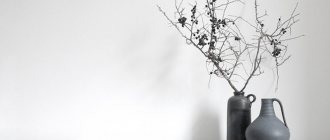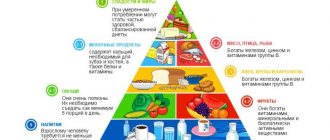The philosophy of minimalism is perceived by the majority as a special lifestyle, and the image of a minimalist is as a person with an Apple laptop in a snow-white loft with a cup of cappuccino. This picture is just the tip of the iceberg, and the path to minimalism has nothing to do with colors and certain brands. Marie Kondo is the author of the bestselling book The Magic of Tidying Up. The Japanese art of putting things in order at home and in life” and its own method. Among the many relevant literature, her book received the greatest resonance in the world. The principle of KonMari is quite simple: leave only things in your home that bring you joy. The remaining things need to be found in the right place to be stored and cultivate the habit of returning them to their place. In addition to order, this approach will help you build a completely new relationship with things and understand the essence of minimalism. “The whole point of getting rid of things you don’t need and keeping things you need is to be happy,” Kondo writes, and it’s absolutely true.
The KonMari system has become even more popular thanks to the 2021 Netflix series Tidying up with Marie Kondo, where an enterprising Japanese woman teaches American families about order in their home and life. In 2021, it is planned to launch the second season, in which they will “clean up” an entire American city. Only a large team can handle such large-scale projects, but in your apartment you can easily figure it out on your own.
Where to start a global cleansing
A big goal on the path to getting rid of excess begins with local steps. Kondo recommends a simple-to-complex approach, from everyday clothing to things we have an emotional attachment to. Such cleaning should take place not by storage area, but by category.
Advertising on Forbes
It is recommended to start with the wardrobe. The basic rule is to pick up every item. Tactility is very important in this process because body cues can be received through touch. During such analyzes, among things we often find those that we carry out of inertia: something was bought impulsively, something is the result of an erroneous vision of ourselves.
The most important thing is not to try to deceive yourself and keep an open mind about your intuitive feelings. If you realize that a T-shirt that you really like has shrunk a size or is covered in pills, think about whether it makes sense to keep it in your wardrobe.
Tip: Tackle one category of items at a time. Collect it all in one place at once to see the real number of items. This is sobering and naturally encourages you to get rid of excess.
The philosophy of minimalism
Luxury and wealth in human history are inextricably linked with the concept of a happy life. Of course, not everyone thinks so, but for some reason success is often measured precisely by the number of luxury items, phones and cars. You don’t have to believe in this, or you can play by the rules of society, trying to prove your worth in life with third Rolexes. Or you can tell yourself “stop!” and rethink everything connected with the cult of “achievement”.
Asceticism teaches just this - rethinking and how important it is to prioritize harmony with yourself and the world around you, which is often not associated with the latest model phones. This philosophy teaches you to enjoy the little things and realize that happiness cannot be bought for any amount of money (often people forget about this for some reason, and minimalism strives to remind you).
Decorative pillow CITUS WHITE 45x45
756₽
Decorative pillow CITUS WHITE 45x45
756 ₽
And at the same time minimalism does not give life hacks on how to live on a minimum amount per month, it is not about money at all, but about how to learn to understand what is really a desire and need, and what is just husk imposed by advertising and social networks, where promote a model of a glossy beautiful life.
Minimalism helps to create coziness in an apartment from the most necessary things. The decluttering process in this case occurs quickly and categorically. And even if saying goodbye to some things seems too hard, after that you can feel like a stone is falling from your shoulders and you can breathe more freely.
Chair Saxon eco leather gray
6353₽
7944₽
Chair Saxon eco leather gray
6353 ₽
7944 ₽
We're done with clothes, let's move on to books
Starting with clothes, you can move on to books, magazines and documents. It’s hard to throw away books because you have the feeling that you will re-read or read them someday. But the question “Do I really like this book?” helps to sober up. If it’s really hard, find your favorite one in the stacks and understand what sensations are worth catching. Books from other people's lists that have not been opened during the year will immediately go to the trash can. Some of them remain unpacked. It’s easier to sort the ones you’ve already read into those that are outdated and those that are really needed.
You can cut out your favorite articles from magazines and sort through documents. They will probably contain expired receipts, contracts, extra copies, used road maps and warranty cards from discarded equipment. These piles of papers have not been checked for years and take up unnecessary space not only in your apartment, but also in your head.
Tip: Create several folders for documents that need to be kept permanently (passport, diplomas, insurance), temporarily (warranty cards) and those that require processing (receipts, letters, checks). The third folder should be emptied regularly so that papers either go into the trash or into one of the storage categories.
Planning things
Let minimalism be present in this area of everyday life. List a few mandatory tasks for each day and a few optional ones and stick to the plan without losing your attention to the rest. If there is no urgency, then the case can be postponed or rescheduled. But it’s better not to delay the task too much, since minimalism in to-do lists is also quite an encouraging thing. If there are too many things to do or you don’t like doing something, you can use the available resources wisely. Distribute household responsibilities, delegate some task to another person, or at least not assign too many not very pleasant tasks to one day. This is already a step towards simplification.
By simplifying many aspects of life, we become happier, easier to rise to, we have a mood and a desire to do something, while ordinary routine tasks do not seem boring and monotonous. If you introduce these small aspects into your daily life, they will soon become a habit and you will be able to do them with ease, which means that your life will become easier and better.
If you find an error, please select a piece of text and press Ctrl+Enter.
We recommend viewing useful materials:
Decluttering from everything else
The next category of things to be sorted in Japanese is called “komondo”, that is, items for various purposes. This includes bed linen, pens and notebooks, hobby items, and kitchen utensils. A new look at the usual number of things will help you see a lot of what has actually been lying untouched for years, but creates a feeling of disorder.
Some things are difficult to throw out, for example, out of guilt. Gifts from loved ones, whom we are subconsciously afraid of offending, numerous corporate mugs and pens, and simply long-lived items, the purpose of which we don’t even think about. By clearing your living space of unnecessary things, you will begin to feel more and more freedom. Not just from things, but from unnecessary attachments.
Tip: It’s logical to break the sorting of this large category of things into subcategories: stationery, bed linen and towels, cosmetics, tools, sports and hobby items, kitchenware, food supplies.
Why become a minimalist?
I can talk about what minimalism has done for me.
- It helped me quit a job I hated and pursue my dream career.
- This motivated me to give up my unhealthy obsession with fashion and beauty. Such passion made me ruined, unhappy and dissatisfied.
- This pushed me to focus on my health and look inward. And I realized that I need to take time every day to take care of myself.
- It gave me the courage to travel to the other side of the world with a backpack and a bike.
- Minimalism has allowed me to earn more and save more money. Now I do a job I love, work harder, and save money by avoiding unnecessary purchases.
- This forced me to reduce my overall consumption of things.
- Gave me the strength to give up alcohol, which had caused me countless problems in the past.
- Helped me discover more meaning in life and grow as a person.
- And of course it helped me get rid of a whole bunch of stuff.
Anyone can achieve this with minimalism .
The hardest thing is letting go of the past
The last category of things on the path to minimalism are memorabilia, diaries, postcards, letters, etc. If you have a lot of diaries, think about when was the last time you opened and re-read them? Do you feel bad about throwing away photos? At least get rid of duplicates. Can't let go of the past? Think about whether there is energy in this that helps you enjoy the present, feel free and open to new things.
Many things from the past have long since served their purpose, so it’s worth letting them go with all respect. The authors of the book “Minimalism” also write about this. Essential Essays by Joshua Fields Milburn and Ryan Nicodemus: “Our memories are not under the bed. They are inside us, not with our things. <…> Holding on to things weighs on us mentally and emotionally.” There is no need to throw everything away. Keeping a few items that are important to you and finding them a decent place to store them is the most important thing.
Tip: Things you can't get rid of can brighten up your apartment. For example, hangers can be decorated with rings or chains, or the inside walls of cabinets can be covered with memorable posters. The point is to make sure that all the items you value keep you in a state of joy, and not just collect dust in boxes.
Minimalism. My best tips
Calm down
Please remember to calm down first. Minimalism is a lifestyle choice and will take time to get used to. You're not going to get a pristine, minimally furnished, and perfectly organized home overnight.
So allow yourself to take as much time as you need. Start slow and enjoy the ride. Each person starts with something different. And it is very important to remember this when you begin to organize your life.
Minimalism. Get started
Find out which area of your life is most chaotic and start there.
- Do you have an overflowing wardrobe and an addiction to online shopping?
- Are you a hoarder of DVDs and books that you don't watch or read?
- Do you have a lot of games that you don't play?
- Are your days filled with so much to do that you don't even have time to breathe?
- Do you hate your job and dream of a different career?
We all have our weaknesses, things we can improve and reduce. Find out what you have. Create a list (lists are always a good idea) and start making a plan of action.
Tip #1: Take some time to get started, but don't expect it all to be done in one go. Maybe you're the same as me? And do you have too many clothes? Focus on one part of your wardrobe and start getting rid of it. Whether it's your shoes, shirts or coats, take them all out (100% all) and start creating piles of items!
We find a storage place for each item and put everything in its place
After global cleaning, you need to find a place for every item left in the house. This can be challenging and will require rethinking space and storage logic. Marie Kondo recommends storing clothes vertically to save space and clearing all open surfaces of items that often accumulate on tables, dressers and open shelves. Freedom from unnecessary things will give you a feeling of fullness and recharge the energy at home. At the same time, there will be a clear understanding of the real number of things in different categories, and the feeling of lack of something may completely disappear.
Tip: Marie Kondo recommends four storage principles: fold correctly, stack upright, store in one place, and divide storage space into rectangular sections.
Efficient use of the kitchen
This happens for two reasons:
- There is less clutter in your kitchen. You use fewer gadgets and it's easier to find what you need. This makes cooking much easier.
- You simplify the cooking process. Minimalism permeates various aspects of life. And your cooking style is simplified too. Of course, sometimes you can cook something elaborate for a special occasion. However, there is no point in doing this every day. Simplifying the way you cook will save you a lot of time.
How to understand when it's time to say goodbye to something
There is one principle for getting rid of unnecessary things: you need to ask yourself the question “Does this thing make me happy?” The author of the method suggests determining this through a tactile sensation: you smile and feel pleasant vibrations in your body - leave the thing, if you feel something unpleasant - get rid of it immediately. But this sorting criterion may not be clear to everyone, so there are tips from other experts. For example, the author of the book about minimalism, Fumio Sasaki, “Farewell to Things!” New Japanese Minimalism" offers more than 50 tips for aspiring minimalists:
Advertising on Forbes
- ask yourself: “If I suddenly somehow lost an item, would I want to buy it again at full price?”;
- discard things that you have not used for a year and do not intend to use in the future;
- throw away everything you keep solely for the sake of impressing others;
- give up the idea of justifying the money spent;
- throw away anything that creates visual discomfort;
- take photographs of the things you are going to part with to soften the blow (Marie Kondo also recommends digitizing letters, photos, newspaper clippings - it saves a lot of space).
There are also tips from the author of the book “Nothing Extra. Minimum things, maximum happiness" Nagisa Tatsumi, who inspired Marie Kondo to write the bestseller "The Magic of Tidying Up":
- don’t label things as “pathetic”, and it will be much easier for you to get rid of them (if you don’t use something because you’re sorry to ruin it, you’re killing the essence of things);
- do not leave things just in case (especially for papers);
- do not mix necessary things with useful ones, this will make it difficult for you to sort;
- do not elevate things that you have not touched for many years to the rank of “sacred cow”; throw them away!
- get into the habit of checking the expiration date of products;
- limit things to storage areas (closet shelf, drawer, number of hangers).
How to bring minimalism into various areas of life
Well, so that you don’t reinvent the wheel from scratch, we give some tips on introducing minimalism into different areas of life.
1
Use things mindfully
This means using things wisely at any stage - from their purchase to disposal:
- Do not make spontaneous purchases, but plan them;
- Before you think about buying a new thing, think about whether you can get by with what you already have;
- Buy quality items that will last you a long time;
- Take an inventory of your belongings and get rid of unnecessary things;
- Get into the habit of financial planning;
- Minimize your space: whether it's your desk or your kitchen;
- If something can be repaired, do it;
- When throwing things away, think about how to do it environmentally.
Material minimalism rids your home of clutter and saves you money.
2
Minimize your digital life
Be mindful of your information consumption and how you use electronic and digital media:
- Minimize your smartphone use;
- Silence notifications and check them at a pre-scheduled time;
- Clean your subscriptions. Unsubscribe from everything that is not useful;
- Remove unnecessary social networks. Leave one or two that are necessary for work or communication;
- Do a digital detox periodically.
Digital minimalism protects the brain from stress and saves time.
3
Make minimalism your productivity driver
Minimalism allows you to use your time efficiently, and here's what you can do:
- Make minimalist plans. Highlight several important tasks a day that you must complete as efficiently as possible;
- Eliminate distractions. Think about what you do that is not useful (even if it is entertainment);
- Introduce rituals into your life. These are simple daily actions that have a big impact on your development. Like, for example, a morning ritual.
And don't forget to use our algorithm.
Gratitude
In Japanese culture, Buddhism and Shintoism are deeply integrated into everyday life, so respect for things is part of a global attitude towards the world. Advising on getting rid of unnecessary things, Marie Kondo encourages her readers to thank each item for its service and only then throw it in the trash bag. And Fumio Sasaki recommends focusing on people. Feeling grateful to those who give or give you something is much more important than the things themselves.
Gratitude towards the human labor that is invested in clothes, electrical appliances, books, will help to form a more careful attitude towards what remains in your life. Sewing up a hole in a shirt, sending your worn but favorite shoes for repair, washing your bag of stains is an act of caring not only for things, but also for yourself.
- How to get rid of trash from your home: 10 tips from the most popular Japanese minimalist
Start with Research
When you first start living a minimalist lifestyle, you may look at someone and think - wow, that person has so little stuff, I want that too. But you shouldn’t rush things and try to force yourself to reach a certain mark in 24 hours. It's best to start with a little research, like talking to someone who is a minimalist, watching a YouTube video, reading a blog article, a book. Look at how different minimalists live differently. Starting with research and seeing how different minimalism can be will help you find ways to better incorporate minimalism into your own life.
What I learned as a result of getting rid of unnecessary things
Don’t think that after global cleaning you won’t need to buy anything. But a new relationship with things will help formulate an important principle of choice. As Joshua Becker, author of Less Is More, writes, choosing better quality items can help you save money: “The less we spend on a lot of unnecessary things, the more money we have to buy expensive things when we need them.” . So, for example, I happily use an expensive but really high-quality laptop, I wear a single, but universal winter coat, and expensive but durable boots.
Author of the book “The Joy of Small Things.” How to get rid of junk, get yourself in order and start living." Francis Jay also gives recommendations to those who buy too much: "...repeat “enjoyment without possession” as a mantra when you go shopping. Admire the grace of a glass figurine, the intricate craftsmanship of an antique bracelet, or the vibrant colors of a ceramic vase, but don't take them home. Think of it like going to a museum.”
Advertising on Forbes
The arrival to minimalism is difficult to pinpoint at a specific point, because you will have to constantly get rid of unnecessary things. The main thing that can be a powerful experience is the understanding that many things form a distorted picture of ourselves. By throwing them aside, it’s easier for us to be in touch with ourselves, and in a space free from trash it’s easier to breathe and think. And this is the main value of this idea.
What are its advantages
The philosophy of simplicity can make a real difference in your life. We found 7 reasons why you should practice minimalism:
| 1 | Reduced stress: Once you learn to make conscious choices, you will stop regretting losing all your other options. Minimalism allows you to get rid of too many worries, which directly leads to a decrease in anxiety. |
| 2 | Saving money: It is logical that if you are conscious about your purchases, then your costs will decrease. |
| 3 | Fostering Creativity: When you have to work with fewer tools (whatever that means), there is more room for creativity and inventiveness. Watch any survival show to see what you can do with just a knife. |
| 4 | Increased productivity: Eliminate distractions and useless activities so you can get more done in less time. |
| 5 | Developing critical thinking: To make the right decision, you will have to weigh the pros and cons, look for information, check it and draw the right conclusions - in general, think critically. |
| 6 | Improved health: Minimalism embraces everything, including the way you eat and exercise. |
| 7 | Improved relationships: Minimalism means having more time to communicate with your loved ones and being able to fully concentrate on the conversation. |
Learning to live doesn't just happen at the snap of a finger, but it's definitely worth learning. How to do this - read in the next paragraph.
Order in virtual space
High technology is an integral part of the life of any modern person. Even the most convinced minimalist has nowhere to escape from them. Moreover, remote work is fully consistent with the described philosophy, as it frees up a lot of time and allows you to independently control your work activities, creating a convenient schedule for yourself. It’s wrong to say that absolutely everyone who chooses the minimalist path is a freelancer, but it’s probably true that many of them are. And, of course, their chosen philosophy seeps into the virtual sphere of life.
Computer minimalism in everyday life manifests itself in very interesting ways. First of all, you shouldn’t choose the simplest gadget, because another principle of the direction under consideration: little, but high quality! That is why you can purchase a computer with the best characteristics at the moment, but you must organize work with it, according to the rules of minimalism:
Organized data storage: no documents scattered across the desktop. Everything is neatly placed in folders, with signatures and necessary notes.
All used, irrelevant information is not stored in memory for years, but is immediately deleted, freeing up space for what is truly useful.
Photos, personal files and so on - in special storage! Very often the PC hard drive becomes cluttered with just such data.
No millions of different links in the browser. Again, either close the pages on time, or create separate storage for necessary or frequently used Internet resources (the same bookmarks, for example).
Popular social networks deserve special attention. When starting to live minimalistically, check all your accounts. How many really useful, popular contacts, groups, important pages do they have? Often people, starting to analyze their personal virtual space, are surprised to notice how much unnecessary information has accumulated. Feel free to delete friends with whom you have not exchanged even a few phrases, imposed groups and subscriptions, and any empty content. Once you put things in order, you will breathe more freely.
The same goes for email. Minimalists unsubscribe from almost all mailings, getting rid of the huge amount of spam that clogs virtual mailboxes. Check your trash can and you will be surprised how many extra emails have accumulated there!
The truisms of a minimalist man
In order to change your lifestyle, learn to relate differently to things and people around you, it will take a lot of time, but all your efforts will more than pay off on the same level as minimalism. There are several rules that you need to learn before starting a long journey:
- Items that can be used rationally in your life can sometimes replace a dozen beautiful, but low-functional new items.
- Positive emotions, free time and doing what you love help you become happy, not money or valuables.
- Focus on a few of your main goals and confidently move forward towards their implementation, setting a new one only when at least one has been achieved.
- Leave one day a week that you can completely devote to your loved ones: don’t go on social networks, turn off your phone, don’t watch TV. Lose yourself in your household and enjoy life.
Enjoying simple things
People who are maximalists get a lot of pleasure from buying things. They go to malls and buy something new to get that feeling of instant happiness.
The best things in life are not things.
Minimalists enjoy the simple things in life. It could be a walk in nature, reading a book, spending time with friends - it could be anything.
Minimalism and men's wardrobe: important rules
Of course, having introduced minimalism into his personal life, a man must not only rebuild his house and reconsider existing relationships, but also change his wardrobe. Accessories become unnecessary. The total amount of clothing is kept to a minimum, but some things are a must:
- classic shirt and trousers;
- simple but stylish jeans;
- coat with a straight cut and natural tone;
- light T-shirts - no more than two or three pieces;
- a sweater of unobtrusive colors;
- universal jacket.
If bright touches are allowed women's minimalism Natural fabrics, natural colors, monochrome are preferable here. A man's minimalism in things is the ability to choose high-quality and laconic clothes, but at the same time remain stylish and fashionable.
March 3, 2021
Mikhail Solovyov Researcher of active and conscious lifestyle, blogger, writer.
- powerwill.ru
- facebook.com/sorakarum
- vk.com/folkextreme
- instagram.com/ragnar_boo
Exactly three years ago I carried out my first Big Decluttering in my life, the consequences of which went far beyond the usual cleaning and getting rid of hundreds of unnecessary things.
It all started with a broken bookcase. During the fight against garbage for three months, from January to March, I put my electronic affairs in order, set up financial accounting, after a long break I started writing texts again and quit my boring office.
In my blog I provided a detailed list of the work done, but here I will tell you what turned out to be the most significant.
- Dealt with the books About 200 volumes of various science fiction and self-development literature found new owners or went to the trash. This was a big relief: before I bought my apartment, I spent more than ten years wandering around the city with my collected works, and it was exhausting. Some of the library has physically aged, other books I bought compulsively or received for free for review. I breathed a sigh of relief, leaving only really necessary publications on the shelves. Without regret, I sent the old broken rack to the village to my father-in-law for boards, and designed a new one for myself and (as it seemed to me then) more convenient.
- Dealt with the collection of CDs and DVDs Almost no one uses CDs now, but many still store music, films and video games on them, which they cannot throw out. I had a huge collection of five thousand discs, which, with the exception of a dozen especially memorable boxes, went to the trash. In the past three years I have never needed anything written on them.
- I brought order to my digital space. I audited my email accounts, installed a password manager, cleaned up my social networks, cleared out the clutter on my laptop hard drives, and started transferring some of the important information that I needed to keep at hand to the clouds.
- I started doing home accounting in the CoinKeeper program. This decision literally saved my life, because with a change of job the times came when saving money came to the fore.
- I sorted out the most cluttered areas in the apartment : Bookcase, kitchen cabinets, shelves, window sills, space above the refrigerator, first aid kits and tool box. We sold a huge amount of junk, from books and CDs to various feminine gadgets like an unnecessary manicure machine. For a year after the main decluttering phase, we continued to sell things.
- I resolved a bunch of other issues that I had been putting off in every possible way. I sorted out an old problem with the tax office, filed a deduction, put my website https://powerwill.ru in order, and finally changed jobs.
What would I do differently now?
If I were to repeat the Big Decluttering, I would eliminate a few bad decisions.
- Minimalism ≠ saving. I thought that minimalism involves inexpensive solutions and in some respects I went cheap. For example, I wouldn’t try to save money on containers for items and a bookcase. The cabinet was made by furniture makers I knew, who “optimized” my drawing so that the cabinet did not fit into the space allotted to it.
- When it comes to electronic decluttering, I would immediately make a choice in favor of cloud solutions . In 2021, I don’t see any point in storing a huge amount of music, films, books, photos on a hard drive - the “clouds” handle this well. To listen to music I use Yandex.Music, to watch movies and TV series there are a bunch of online cinemas, I now read most books on the MyBook service, and for photos I have a free terabyte of disk space from Mail.ru that I got as part of a promotion.
- At the same time, I would be more responsible in choosing some services. For example, the LastPass service, in which I stored passwords, changed its terms of use and introduced restrictions on the free version. A replacement was found - the KeePassXC program. The bookmark storage service Raindrop.io turned out to be buggy and inconvenient, and now I store bookmarks in the browser. Gmail in the browser is good, but it was too slow for my laptop - and I'm still looking for a decent email program for Windows. Instead of CoinKeeper for home accounting, I started using a more flexible, informative and much simpler spreadsheet in Excel.
- I wouldn't try to ride a dead horse. In particular, I would not try to revive and adapt an old netbook for home needs. It took a lot of time and effort, but the old netbook practically does not support modern browsers and services like YouTube. I currently use it as a tablet stand. Some things are easier to throw away than to try to restore.
- I wouldn't sell the guitar :) However, my heart is at peace: we bought it for a girl who wanted to learn to play.
What can I warn those who are planning to declutter?
The main danger, in my opinion, is inflated expectations from decluttering and minimalism in general.
It seems to me that, having become a trend, minimalism has moved far from its original concept - to simplify life - in two opposite directions. On the one hand, it has become a household tool and for many is associated only with the choice of interior or wardrobe. On the other hand, more and more people perceive it as a recipe for achieving happiness and reaching a fundamentally new level of life. And if everything is clear with the first one, then in the pursuit of happiness we can once again be deceived.
I don’t argue that minimalism is much more than just giving up things. In the book In Pursuit of Minimalism, journalist Karl Chaika laments:
“It’s not entirely clear how “less” turns into “more”? How to reduce the number of things to a minimum is more or less clear: you cull, throw away, make conscious selection. What then? Could the resulting empty space be filled by something fundamentally different? Or, when we reach the state of “lesser,” a certain grace descends on us, so perfect that nothing needs to be added to it?”
Many bloggers, writers, stars promote a convenient and not always sincere idea: you just need to declutter your apartment, put things in order in your wardrobe and gadgets, and happiness and peace of mind are guaranteed. At the same time, their own way of life does not always correspond to the real philosophy of “simple” life.
A striking example is the guru of minimalism, the Japanese Marie Kondo, who publishes her books in millions of copies, sells merchandise and releases a separate show on Netflix.
A typical advertisement for courses on the theme of minimalism: “A course that will help you get rid of clutter in your home and head, get to know your true self and find your way to happiness and balance.” I just want to ask: is it all that simple?
You shouldn’t expect minimalism to solve all problems. Moreover, mindlessly following the advice of popular minimalists can complicate your life rather than simplify it.
There are people who believe that minimalism is hardcore, a rejection of everything. I read a post from one girl: “I have three forks and I’m a minimalist. My guests are forced to take turns eating. There are also only two tea mugs and wine glasses, so we have to make do.” This is not my way of decluttering. You can skip cutlery altogether and eat with your hands. You can throw out the bed and sleep on an air mattress. You can throw away all your books and films and stare at the wall in the evenings. Will this improve quality of life?
Minimalism for the sake of minimalism is another option, at least for the average city dweller, in my opinion. As another blogger said: “I don’t like snow-white hospital apartments and houses of “real” minimalists.”
But what then can experiments with decluttering and minimalism give?
They can, at a minimum, encourage self-knowledge, understanding of one’s capabilities and further “purification” - from thinking patterns, bad habits and toxic people in the environment.
For some, minimalism will be the first step towards a more environmentally friendly lifestyle and reasonable consumption. Some may be interested in exploring other forms of minimalism—in music, in art, in architecture, in fashion.
Quote on Twitter
Clearing the space around you does not give you instant happiness, but it motivates and lays the foundation for further work on yourself.
Three years ago, I saw the main result of decluttering in the fact that I was able to prove to myself: I am capable of global changes, not in words, but in deeds. After some time, I stopped organizing regular “cleansing”, and things can again be seen on empty shelves and surfaces in my apartment. But the habits I learned from that experience stayed with me.
I have become more relaxed about getting rid of unnecessary things. For example, it has become normal practice to buy a book, read it and take it to bookcrossing. The old me would have been strangled by a toad: what a waste of money, it’s a pity... This “pity” three years ago led to the fact that, under the weight of books that I was not ready to get rid of, my bookcase broke, because of which I almost I broke myself.
If you think about what a book is, it’s just sheets of paper covered with printing ink. Of course, there are books with history, or books whose pages give inspiration, but as it turns out, I don’t have many of them.
This also includes things that are a pity to throw away, because “what if you need it?” I admit, once every few months I note that at one time I gave away or threw away some thing that was now “suddenly needed.” For example, my daughter’s class teacher recently asked me to record her school project on a CD-R. I once had a whole box of blank discs that I kept just in case, but it took up space, collected dust for years, and I threw it away, so I had to go to the store for a blank (try and find one again!) At such moments I do take a deep breath and tell myself: this is the price I pay for not living among junk.
And more about books. I used to collect a library, and I still do, but in a different way. Before decluttering, I was chasing quantity, collecting series, but now I keep only three categories of books at home in printed form:
— those that make no sense to read in electronic form (due to illustrations, design or other features); - those that impressed me very much, and to which I plan to return more than once; - those whose purchase will be my way of supporting the author.
For everything else, I created an account in MyBook and read from my tablet. The habit of pleasing oneself by buying books has not gone away, but now many books simply do not stay at home.
The results of decluttering pushed me to change my life principles. I became interested in the philosophy of essentialism after reading Greg McKeon’s book of the same name, and decided that if I were to simplify, then to the fullest. This has led to the fact that for several years now I:
- I consciously refuse most offers to write something, speak somewhere, or participate in something.
- If I’m not sure it’s “yes,” then I say “no.”
- Get off the needle of training courses.
- I stopped reading all the books in a row, playing book challenges, clinging to every interesting flash mob.
- I stopped starting any Internet projects without first making sure that I would be ready to devote resources to them for a long time.
- I stopped forcing myself to complete things that I don’t feel like doing (this point is closely connected with the previous one).
- I gave up on perfectionism, but fell in love with the concept of MVP.
- I practice “information ignorance,” as Tim Ferriss calls it in his book about the four-hour workweek. I stopped reading the news and minimized my presence on social networks. Instead, I started a book channel on Telegram, which I run for the soul.
A reasonable question may arise: “Didn’t your life become boring because of this?”
I agree, I'm definitely missing out on a lot of interesting opportunities. But this suits me, I spend less nerves and energy than before, and there is always time for something really important. Minimalism in organizing my life turned out to be much more important for me than the desire for minimalism in things. Moreover, I began to think differently about the very concept of “minimalism”, having stopped counting things and organizing challenges like the “minimalist game.”
Summarize. You've decided to do your own decluttering. What three pieces of advice can I give?
- If you haven't tried it before, be sure to try it . Throw everything you read above out of your head and declutter :) This only looks like cleaning, but in fact it can be a good start for new changes.
- Try it, but don't expect stellar results . There are no guarantees that life will immediately become joyful and conscious. The effect of decluttering practice will be clearly noticeable in two cases: if your decluttering is really Big, or after time has passed, when you have lived enough in a new environment with new sensations.
- There is no need to make getting rid of as many things as possible the main goal of decluttering. The point here is not to have as little stuff as possible, but to get rid of things you don't need and, through regular local decluttering, develop the habit of not accumulating such things again. Take everything easier, don’t go to the extreme. Although, I don’t argue, challenges like the already mentioned “minimalist game” can give impetus and greatly stir up...
There is a good German film about minimalists, “100 Things and Nothing Extra” (100 Dinge).
In the story, two friends at a party decide to find out which of them is less dependent on their property, and enter into an argument. They pack all things (including clothes) into a cargo container and set the condition that you can only return one item per day. The warehouse is located far from home, it’s winter, and one of the heroes goes crazy without a phone, but on the first day he finds the strength to choose a more practical thing - a coat. The second one comes up with a life hack and goes home... in a warm sleeping bag, making holes in it for the legs. As a result, a strange experiment, as is usual in movies, completely changes the lives of the characters and the people around them.
But we are not living in a movie, and instead of radical experiments, I would rely much more on the good old “principle of small steps.” As the Little Prince said, before you put the planet in order, you need to put yourself in order.
- After reading this article, choose and throw away one unnecessary item (or better yet, two!)
- Another time, collect unnecessary books from the shelf and put them on Avito.
- Third, decide which things in your home are obsolete and have no collectible value.
While decluttering, I threw out an entire stereo system, which in my old age stopped spinning discs, and “chewed” cassettes every now and then - the relief was as much as the space freed up in the closet. I am sure that every person who has lived in one place for many years will be able to find at least one such artifact.
Steve Jobs once said, “Simplicity is the essence of sophistication. It takes a lot of hard work to get something truly simple.” I would like to think that he said this not only about Apple products, because this rule applies in life.
Don’t be afraid to part with things, because decluttering is not only about WHAT we get rid of, but also WHY we get rid of it, and what JOY the things we leave give us.
Self-development #Minimalism #hundred-day_experience #Awareness










